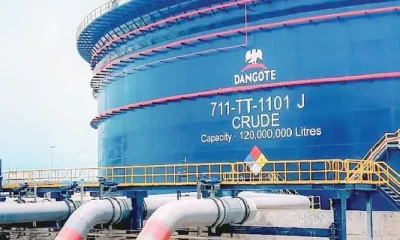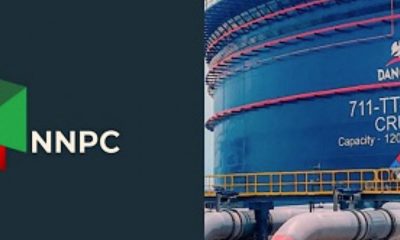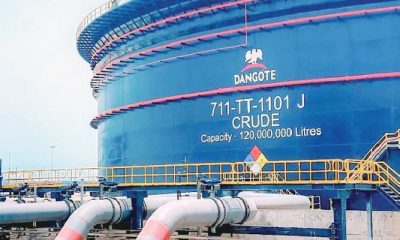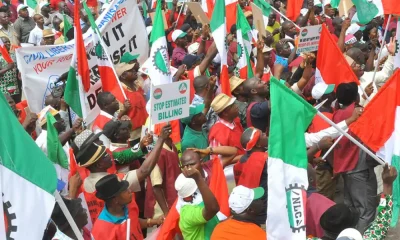BUSINESS
Dangote Suspends Gantry Sales Amid Market Face-off
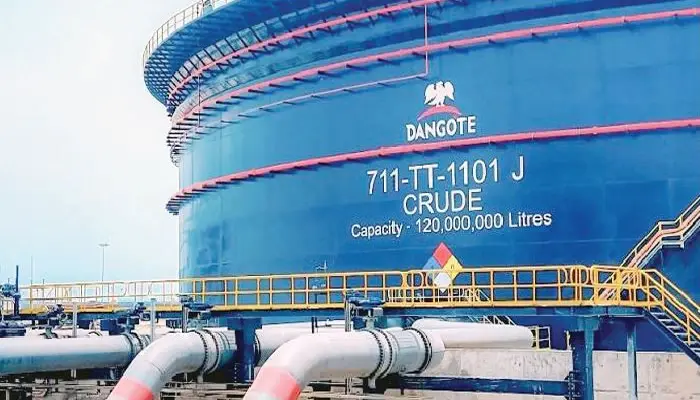
The Dangote Petroleum Refinery and Petrochemicals FZE has suspended all self-collection gantry sales of premium motor spirit, a move that signals a significant escalation in its ongoing dispute with oil marketers and a major union. The directive, announced in an email to customers on Thursday, September 18, 2025, has sent shockwaves through the petroleum downstream sector and raises critical questions about market dynamics, competition, and the future of fuel distribution in Nigeria. While the company cited a need to put sales and payments on hold “until further notice,” industry experts believe the decision is a direct result of a simmering feud that has now boiled over.
The suspension follows a week of intense public back-and-forth between the Dangote Group and two key industry players: the Depot and Petroleum Products Marketers of Nigeria (DAPPMAN) and the Nigeria Union of Petroleum and Natural Gas Workers (NUPENG). The face-off began last week when the Dangote Refinery announced its gantry price of N820 per litre, a move that was met with strong opposition. DAPPMAN, NUPENG, and other stakeholders had quickly rallied against the initiative, describing it as a monopolistic and anti-competitive practice designed to undermine their businesses. The marketers argued that the refinery was attempting to bypass established distribution channels and sell directly to a select group of customers, a move that would eventually put countless independent marketers and depot owners out of business.
In response to the accusations, the Dangote Group launched a blistering counter-attack. The company accused DAPPMAN of having a hidden agenda, alleging that the association demanded a N1.5 trillion annual fuel subsidy to enable its members to compete with the refinery’s prices. The refinery further claimed that marketers were engaging in round-tripping practices, buying petrol from Dangote at a lower price and then diverting it to neighboring countries where prices were significantly higher. In a statement widely circulated, the refinery also alleged that marketers were sponsoring and manipulating labour unions like NUPENG to frustrate its operations. DAPPMAN vehemently refuted these claims, describing them as misleading and factually incorrect. The association countered that Dangote itself was favoring foreign off-takers with discounts of more than $40 per metric ton while denying Nigerian marketers access to coastal vessel loading, thereby creating the very arbitrage opportunities it now criticizes.
The decision to suspend gantry sales is a strategic shift for the Dangote Refinery, which has been trying to establish a new distribution model. Dependable NG confirms that the refinery’s original strategy was to use a fleet of Compressed Natural Gas (CNG) trucks to deliver products directly to retail stations, cutting out middlemen and reducing logistics costs. This was seen as a bold move that could potentially lower pump prices for consumers and eliminate the inefficiencies that have long plagued the sector. However, with the suspension of gantry sales, the company is now effectively forcing marketers to adopt its “free delivery scheme.” While the refinery claims this is an “operational adjustment” to promote a more efficient supply chain, it also serves to consolidate its control over the entire distribution network. This could create a win-lose scenario in the market, with independent marketers who cannot afford to join the scheme facing a significant disadvantage. The situation also poses a serious test for the Nigerian Midstream and Downstream Petroleum Regulatory Authority (NMDPRA), the government agency responsible for ensuring fair competition. Stakeholders are now looking to the regulator to intervene and mediate the dispute to prevent a major disruption to the nation’s fuel supply. The ongoing feud highlights the deepening tensions in Nigeria’s downstream oil sector as the country navigates a new era of deregulation, with the Dangote Refinery at the center of the debate over whether the market will be defined by competition or by dominance.

